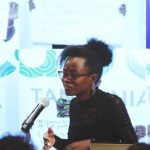TechInAfrica – After launching its third-party fact-checking program in five African countries—Kenya, Nigeria, Cameroon, Senegal, and South Africa—Facebook has now expanded the program to 10 additional African countries in Sub-Saharan Africa including Burkina Faso, Ethiopia, Somalia, Zambia, Uganda, Tanzania, Democratic Republic of Congo, Cote d’Ivoire, Guinea Conakry, and Ghana.
Facebook’s third-party fact-checking program is working with a network of fact-checking organizations certified by non-partisan International Fact-Checking Network, including AFP, Pesa Check, the France 24 Observers, and Dubawa.
Through the program, local articles will get through some fact-checked as well as photos and videos verification. If the content is found false, Facebook will reduce its change to show in News Feeds.

“The expansion of third-party fact-checking to now cover 15 countries in a little over a year shows firsthand our commitment and dedication to the continent, alongside our recent local language expansion as part of this program,” said Kojo Boakye, Facebook Head of Public Policy, Africa.
“Taking steps to help tackle false news on Facebook is a responsibility we take seriously, we know misinformation is a problem, and these are important steps in continuing to address this issue. We know that third-party fact-checking alone is not the solution, it is one of many initiatives and programs we are investing in to help to improve the quality of information people see on Facebook. While we’ve made great progress, we will keep investing to ensure Facebook remains a place for all ideas, but not for the spread of false news.”
Facebook will show a new story fact-checked by partners instantly below the story in News Feed. Both page admins and general Facebook users will also get notifications when they want to share a story or have shared one before that considered false news. By doing this, Facebook wants its users to choose wisely what to read, trust, and share with others.
Source: techawk.com.ng




